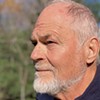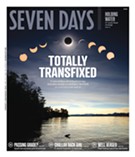Published March 13, 2006 at 4:14 p.m.
In case you wonder if the level of American consumption really matters, consider these statistics assembled by ecological economist Lester Brown. Given current rates of growth in the Chinese economy, by 2031 the 1.3 billion residents of that nation will be about as rich as we are. If they then ate meat, milk and eggs in the same quantities as we do, they'd consume 1352 million tons of grain -- equal to two-thirds of the world's entire 2004 grain harvest. They'd use 99 million barrels of oil a day, 20 million more than the entire world presently consumes. "If China's coal-burning were to reach the current U.S. level of nearly two tons per person, the country would use 2.8 billion tons annually -- more than the current world production of 2.5 billion tons. They'd use more steel than all the West combined."
Paper? At the present American rate, the Chinese would consume 303 million tons, roughly double today's world production. Cars? They'd have 850 million on the road. And that's just China; by 2031, India will have a higher population, and its economy is growing almost as fast.
Then there's the rest of the world. Even taking into account recycling, Brown warns, "If all the people on Earth used as much paper as the U.S.A. consumes, then in two years not a single tree would be left on the planet."
It's no stretch, then, to say that Judith Levine's account of her year of doing without unnecessary stuff is An Important Book. Not Buying It: My Year Without Shopping is also fun, kicky and fun to read, especially for Vermonters who will recognize many of the names. Given that we live on a finite planet, consumption may be the issue we need to think about the most. But, given our devotion to consumer culture, it's the one we usually think about the least.
Levine and her partner Paul Cillo begin their exercise on New Year's Day 2004 in the Hardwick home where they spend summers and winters. (Springs and falls are in Brooklyn.) They agree to shop for groceries, but nothing fancy: no processed or prepared foods except the most basic, bread. No restaurants. No movie or video rentals.
It's not, as Levine admits, a perfectly logical scheme, especially since they continue with ongoing house renovations and enlargements, expanding their home to include "a large living room and library, master bedroom, guest room, two offices, two baths, insulated porch/mudroom, wine cellar, and many, many built-in cabinets, shelves, and closets." In fact, the difficulty of figuring out what actually qualifies as a necessity is one of the project's leitmotifs: Do you actually need a Q-tip to clean your ears, or do you just want one? Is wine a necessity? Cillo, of Italian extraction, says yes.
At times the whole process feels fake, Levine notes: The difference between buying bread, cheese and lettuce at the co-op and buying a cheese sandwich at the co-op is a little hard to fathom.
But experiments such as this one -- recounted in breezy, readable diary format -- are really useful; they help us to understand how many unspoken assumptions shape our daily lives, and how much of our time is spent simply wanting.
You could argue that Levine is unrepresentative of Americans in general -- childless, political, not a Wal-Mart shopper. But in a way she seems perfectly typical. Wherever she is, she takes on the prevailing consumption patterns. In New York she wants to dive into avant-garde film; in Hardwick, she wants to be a cross-country skier. And, like good Americans of every class and place, she thinks of those desires in terms of buying things. She goes for a memorable 20-kilometer cross-country ski one February morning and, instead of really enjoying it, she spends her time thinking about how much better it would be if she had better boots, better gaiters, better bindings.
I'm falling farther behind. From a distance I watch Grace's muscular butt tighten with each strong kick. When I get my new boots and bindings and pants, I won't be wobbling off my skis and stopping to shake off the clotted snow. I'll get thinner and stronger, like Grace.
What's interesting, though, is that Levine's friend Grace is on 20-year-old skis. She's having a good time because she's devoted much of her life to skiing, and become so good at it that the equipment and conditions don't interfere with her flow. Immersion in a couple of what the Montana philosopher Albert Borgmann calls "focal activities" is one way around the consumption trap: Fill hours every day with the meditative pleasure of cross-country skiing, guitar-playing or gardening, and you'll have fewer holes that need filling with stuff. Drill a couple of deep holes, not a thousand shallow ones.
The really resonant lessons of Levine's experiments, however, have less to do with developing an individual ethic of consumption than with developing a sense of community. For instance, she quickly discovers that the New York library system she suddenly must depend on has been systematically under-funded, to the point where no one is replacing stolen books and much of what she needs for her work is unavailable. In a world without libraries, or where libraries don't work -- that is, the world since Ronald Reagan convinced an American majority that private is good and public is bad -- you're just supposed to go to the bookstore instead.
Of course, sometimes you should go to the bookstore, so that you can support writers, and books, like this one, and genuine community hubs such as Hardwick's superlative Galaxy Bookshop. But we badly need a public support system as well -- for, as Levine points out in her last few pages, not just books but also health care, roads, education. All "the things and processes whose universal benefit exceeds the private interests of individuals and whose value, even if they cost a lot of money, exceeds that of the commodities that can be sold at a profit."
There's a word for a system like this: Europe. Or maybe Canada. Places where there remains an emphasis on community life and a willingness to pay the taxes that support it. That means less money for private consumption -- $10 or $15 thousand less per person per year, depending on how you measure it and which country you examine. But it also means (and Levine could have done more with this emerging research) higher levels of life satisfaction. We have more stuff, but we don't have more happiness. We could switch our priorities, just as Levine did:
In the end, it's a matter of how you, or you collectively as a nation, define prosperity and poverty, abundance and scarcity -- a question of what you . . . desire. This year, Paul's and my household is a little like Denmark. Neither of us earned a lot, but we both feel prosperous.
This is, I think, exactly the right message, the one we need desperately to spread. The biggest question facing our century may be whether the Chinese or the Indians decide to model themselves on Western Europe or on America. Levine manages to explain in very gut terms what that choice is all about.
Not that building community is easy, of course. Levine tells the sad tale of Hardwick wrestling with a cellphone tower, for instance, as a caution to wishful thinking. Still, it's the job that must be done. My only real complaint with Levine's book, in fact, is that she's nearly nasty to other people who have been trying to figure out of some of the same problems. She smacks down everyone from callers into radio talk shows who complain about Christmas excess to Global Living Project founder and Radical Simplicity author Jim Merkel, who, recently hired as the first sustainability director of Dartmouth College, is trying to transform an entire, and important, institution. This is a cheap and easy way to establish your own cred, and a bad way to build community among the people who must fight this fight.
But these are minor matters; on every point that really counts, Levine is funny and incisive. Her book could make a real difference.
More By This Author
Speaking of Book Review
-

Review of Sen. Patrick Leahy's New Memoir
Aug 26, 2022 -

Book Review: Pete the Cat and His Magic Sunglasses
May 27, 2016 -

Book Review: Penguin Cha-Cha
Mar 31, 2016 -

Book Review: Dog vs. Cat
Dec 16, 2015 -

Book Review: The Hummingbird by Stephen P. Kiernan
Nov 4, 2015 - More »
Comments
Comments are closed.
From 2014-2020, Seven Days allowed readers to comment on all stories posted on our website. While we've appreciated the suggestions and insights, right now Seven Days is prioritizing our core mission — producing high-quality, responsible local journalism — over moderating online debates between readers.
To criticize, correct or praise our reporting, please send us a letter to the editor or send us a tip. We’ll check it out and report the results.
Online comments may return when we have better tech tools for managing them. Thanks for reading.











































